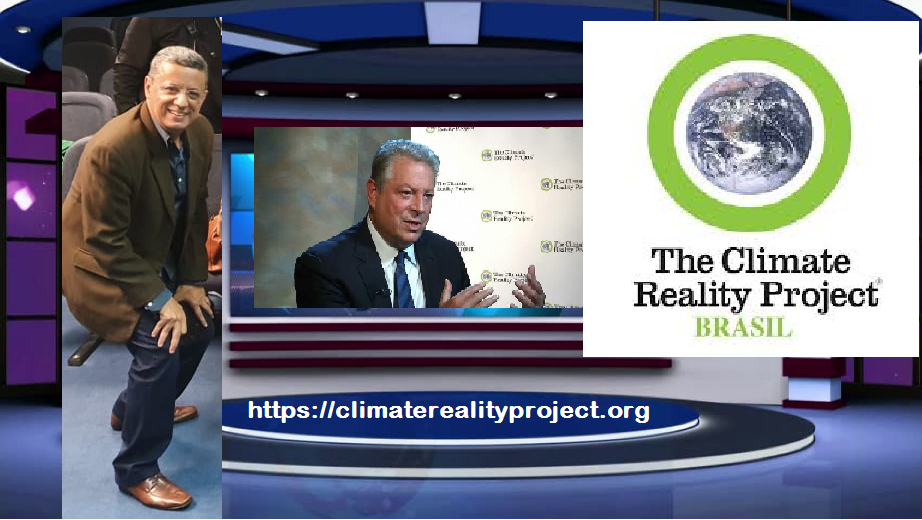The poorest contributed least to the problem but they are the most affected by climate changes
A key reflection for Climate Leaders in Brazil: The poorest don’t have to pay the cost of the climate change impacts!
Sustainable Development (very)Short Bio: Information Centre Coordination at Global Forum 1992, Executive Director and Undersecretary of Public Investment at ADM City Development Agency – Niteroi, Rio de Janeiro, Head Coordination at FORDES RIO – The Rio de Janeiro State Development Forum; Former Acting Regional Director ICLEI-LACS (implementation of Global Campaigns: The CCP/ Cities for Climate Protection, The LALA21 Local Agenda and The Water Campaign; Rio+10 South Africa WSSD LAC Municipalities Group Attendance Coordination Group 2002), Urban Management and Sustainable Development GUDS International Program Graduate/ UN ECLAC - World Bank - UN Habitat at Universidad Ibero Americana, Santo Domingo – Dominican Republic 2001), Former National Director at ChildFund International Brazil 2006 (Design and Implementation of Human Sustainable Development Program PDHS in Semiarid Region, Presented the CCF Voices of Children on Poverty in Brazil at Washington DC Conference), GWU-CAF-FGV International Public Governance Program Brazil 2016, CoalitionWild International Mentorship Program 2020-21, WildHub Member 2020. National Award in Child Education by Foundation Abrinq 2004, The Operation Smiles Award, and 3 x awarded with The Bem Eficiente – Well Efficient National Prize in NGO Transparent and Effective Management by Kanitz Institute, Brazil. Certifications in FR, Social Project Management, Logical Framework held in Brazil and abroad.
The poorest contributed least to the problem but they are the most affected by climate changes, and lack the material resources to protect themselves from the impacts.
It is estimated that the COVID-19 pandemic will shrink the global economy by 5.2% this year, and the reflection of the recently released GDP in Brazil pointed to a 9.7% drop compared to the same period in 2019. It will be very important to take into account the already weakened situation of the poorest 40% of its population. In Brazil, as in several other countries, the covid19 pandemic widened the inequality gap, increasing the level of poverty of populations already living in depressed socioeconomic conditions, deepening the great differences that already exist.
A survey / research carried out by the World Bank in April this year, projected that about 5.4 million Brazilians would be launched at the level of extreme poverty. Add to that unemployment with the breakdown of hundreds of thousands of micro and small enterprises, and the fact that 60% of Brazilian children, adolescents and young people, that are students in public schools, suffered direct impacts on their lives and their families, with the closing of schools due to the impossibility of conducting regular classes, and in this way they have further boosted these difficulties just because they do not eat daily in their schools.
It is important to reaffirm that more recent studies have covered a contingent of approx. 50 million Brazilians living below the poverty line even before the pandemic.
Researchers and experts linked to the climate issue have already designed some scenarios in which the effects of climate change associated with the devastation of the Amazon Forest, for example, lead to situations of high risk. In other ecosystems such as the Pampas in the south and the Brazilian Cerrado spread throughout its heart land portion, there is already an increase in periods of scarcity of rain, a fact that associated with burnings carried out by farmers and ranchers has harmed hundreds of native species of these natural biomes.
Therefore, the great challenge for current and new climate leaders in Brazil will be to bring the agenda into action and with a sound intention of taking our contribution through strategic and intelligent communication, smooth tuned with the different generational profiles and as ambassadors of this cause – a true emergency, as to mitigate and reverse this problem.
*Linkedin profile at https://www.linkedin.com/in/jose-esteves-2a53127/ and feel free to connect by www.exponentialis.com.br
**An updated 2020 list of cities considered sustainable you can find in https://www.nationalgeographic.com/environment/urban-expeditions/green-buildings/sustainable-cities-graphic-urban-expeditions/
***Want to hire my experience? I will send you a Resume.
Need my contacts? Use the #FlowCode bellow







Please sign in or register for FREE
If you are a registered user on WildHub, please sign in